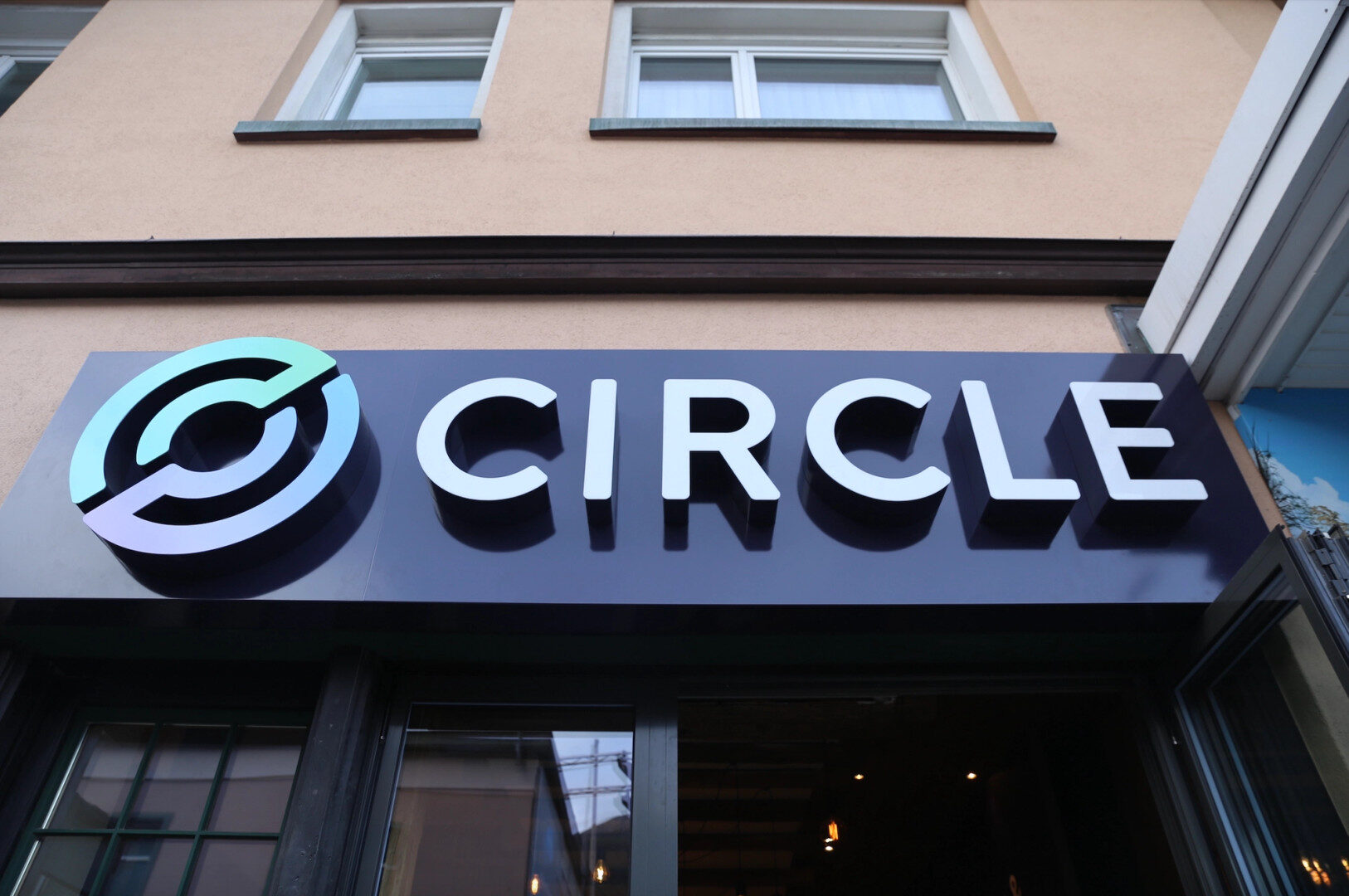BTC
$107,608.53
+
0.05%
ETH
$2,503.66
+
2.99%
USDT
$1.0003
+
0.01%
XRP
$2.2932
+
4.76%
BNB
$659.10
+
1.57%
SOL
$156.59
+
3.31%
USDC
$1.0001
+
0.02%
TRX
$0.2797
+
1.51%
DOGE
$0.1669
+
1.51%
ADA
$0.5846
+
4.22%
HYPE
$40.82
+
6.01%
BCH
$514.52
+
4.44%
WBT
$44.32
–
5.07%
SUI
$2.8017
–
0.33%
LINK
$13.57
+
1.29%
LEO
$9.1073
+
0.93%
AVAX
$18.10
–
0.33%
XLM
$0.2403
+
1.62%
SHIB
$0.0₄1153
–
0.50%
LTC
$86.51
–
0.34%
By Krisztian Sandor, Helene Braun, AI Boost|Edited by Stephen Alpher, Nikhilesh De
Updated Jun 30, 2025, 8:49 p.m. Published Jun 30, 2025, 8:35 p.m.

- Circle has applied to form a federally regulated trust bank, seeking oversight from the U.S. Office of the Comptroller of the Currency.
- The new entity, First National Digital Currency Bank, would manage USDC reserves and offer services to institutions.
- Circle’s move aligns with potential U.S. legislation on stablecoins.
Circle (CRCL), the company behind the USDC stablecoin, said Monday it has filed an application with the Office of the Comptroller of the Currency to form a federally regulated national trust bank.
A federal trust charter would bring Circle under direct OCC oversight, aligning it with how traditional financial institutions are regulated. If approved, the new entity, which would be called First National Digital Currency Bank, N.A. would oversee custody of USDC reserves and offer services tailored to institutions. If approved, Circle would join the ranks of federally chartered institutions like Paxos and Anchorage, both of which previously secured trust bank status to offer crypto-related services nationwide.
STORY CONTINUES BELOW
The trust bank status would allow Circle to operate across state lines without obtaining separate licenses in each state — a hurdle that has complicated expansion for many digital asset companies. It would also permit Circle to offer regulated digital asset custody services to institutional customers.
The move signals a strategic effort by Circle to solidify its regulatory standing as the U.S. mulls legislation like the GENIUS Act, which would create new guardrails for dollar-backed stablecoins. The company said becoming a national trust bank would help it meet anticipated requirements under the bill, which passed through the Senate earlier this month and now awaits a vote in the House of Representatives.
“By applying for a national trust charter, Circle is taking proactive steps to further strengthen our USDC infrastructure,” Circle CEO Jeremy Allaire said in a statement. “We will align with emerging U.S. regulation for the issuance and operation of dollar-denominated payment stablecoins, which we believe can enhance the reach and resilience of the U.S. dollar, and support the development of crucial, market neutral infrastructure for the world’s leading institutions to build on.”
Circle went public last month and issues the world’s second-largest stablecoin, USDC, and the leading euro-pegged token EURC.
The OCC, which oversees national banks and federal savings associations, must still review and approve Circle’s application. The agency has granted similar charters to a handful of crypto firms in recent years, signaling growing regulatory acceptance of digital asset companies operating within the traditional banking framework.
UPDATE (June 30, 2025, 20:50 UTC): Adds additional information.
Disclaimer: Parts of this article were generated with the assistance from AI tools and reviewed by our editorial team to ensure accuracy and adherence to our standards. For more information, see CoinDesk’s full AI Policy.
Krisztian Sandor is a U.S. markets reporter focusing on stablecoins, tokenization, real-world assets. He graduated from New York University’s business and economic reporting program before joining CoinDesk. He holds BTC, SOL and ETH.
Helene is a New York-based markets reporter at CoinDesk, covering the latest news from Wall Street, the rise of the spot bitcoin exchange-traded funds and updates on crypto markets. She is a graduate of New York University’s business and economic reporting program and has appeared on CBS News, YahooFinance and Nasdaq TradeTalks. She holds BTC and ETH.
“AI Boost” indicates a generative text tool, typically an AI chatbot, contributed to the article. In each and every case, the article was edited, fact-checked and published by a human. Read more about CoinDesk’s AI Policy.

















